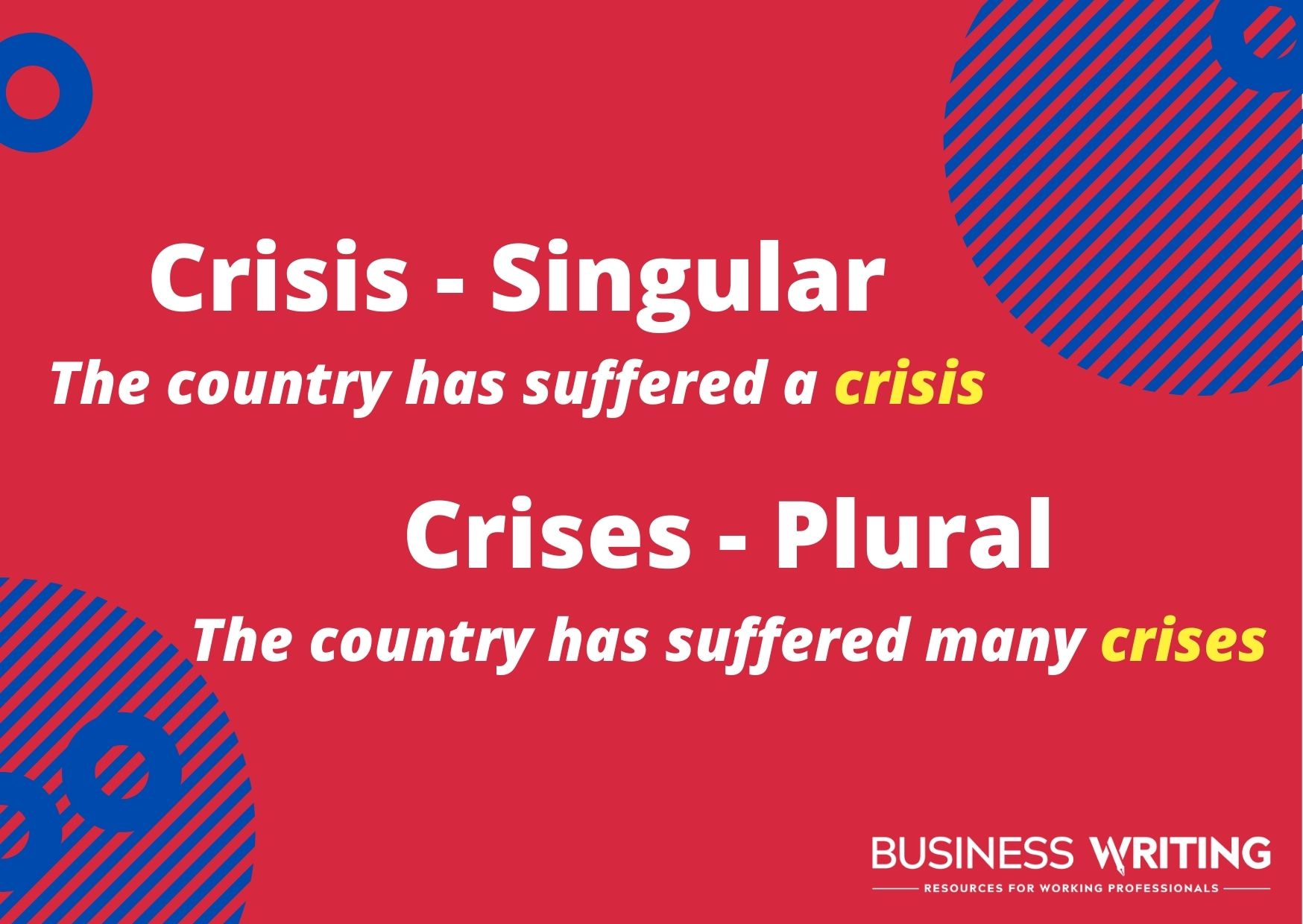Crisis and crises are both correct and acceptable words to use in American English, but they also differ slightly in meaning. This article will explain the difference and ensure you know which one to use in the proper context.
Crises Is the Plural of Crisis
The word crisis is defined as “a catastrophe or negative event.” A crisis can be financial, social, political, or even related to the climate or environment. That’s why you may hear news about a tsunami, an economic collapse, or a riot explained as a crisis.
When you’re writing or speaking about more than one crisis, we need to use the plural form of the word which is, crises.
To help demonstrate the distinction between the two, here are a few example sentences:
Since the latest currency crisis, the country’s economy has been on a slow path to recovery.
Civil war in the territory has led to a humanitarian crisis affecting thousands of refugees.
The small island has survived several crises, including an earthquake and government corruption.
So you see, crises is simply the word used when explaining more than one crisis.
Why Crisis vs. Crises Can Be Confusing
You aren’t alone if you weren’t aware of this difference or feel confused by it. The word crises isn’t used repeatedly in everyday language (although you might hear it somewhat often on the news).
Some people might also stumble with the word crises because its root word, crisis, ends with “s.” That letter is added to almost every English word derived from Greek when we want to make them plural. For example, acrobat becomes acrobats.
For this reason, some readers and writers may struggle with pluralizing words that already end in “s.” This is one area of the English language in which proficiency is simply a case of familiarity through repeated exposure to the words.

Pop Quiz
Choose the correct use in each sentence.
1. Paula considered leaving the convent when she had a [crisis / crises] of faith.
2. One crucial role for the government is to prepare for [crisis / crises] that may occur in the near future.
3. Climate change could ultimately lead to a food [crisis / crises] even in the developed world.
4. Losing teachers may not seem like a [crisis / crises] right now, but the long-term social and economic effects would be horrible.
5. I never understood how many [crisis / crises] there were worldwide until I started working in journalism.
Pop Quiz Answers
1. Paula considered leaving the convent when she had a crisis of faith.
2. One crucial role for the government is to prepare for crises that may occur in the near future.
3. Climate change could ultimately lead to a food crisis even in the developed world.
4. Losing teachers may not seem like a crisis right now, but the long-term social and economic effects would be horrible.
5. I never understood how many crises there were worldwide until I started working in journalism.
Related: Recognizing words with NO plural form.
Want to sharpen your business writing skills? Discover our acclaimed online courses






